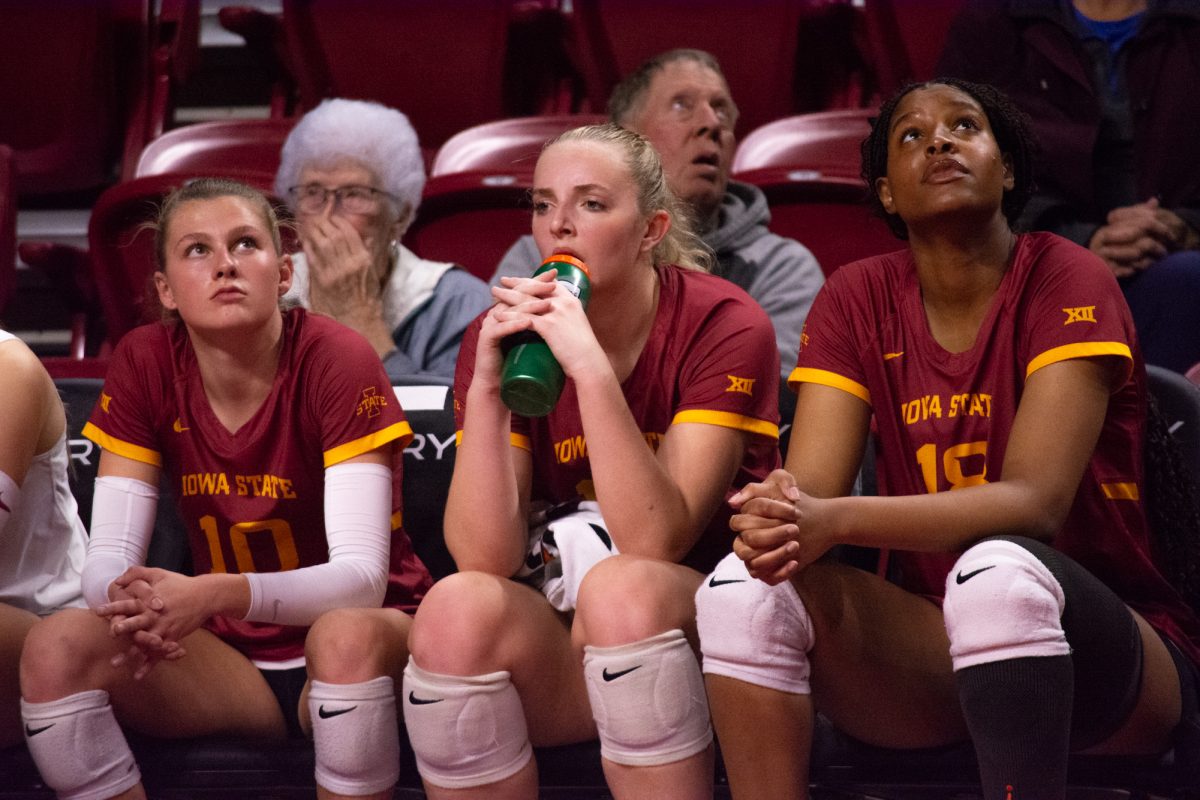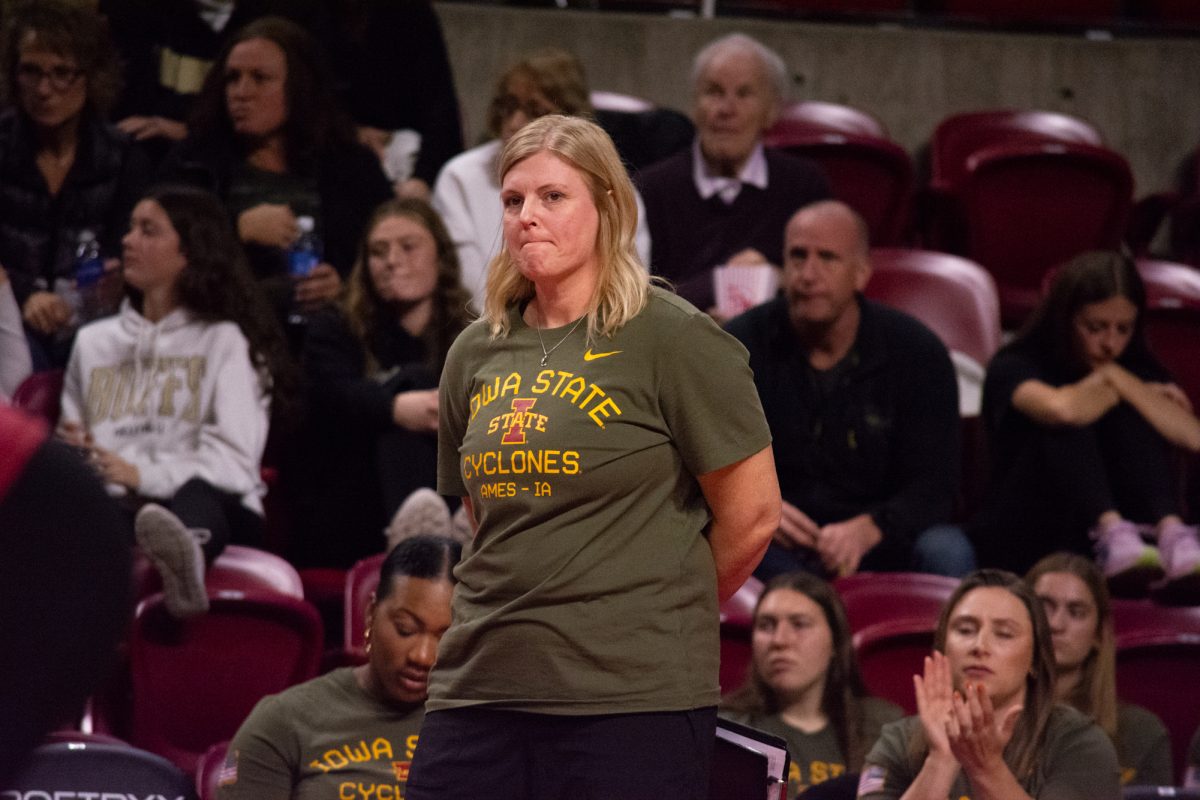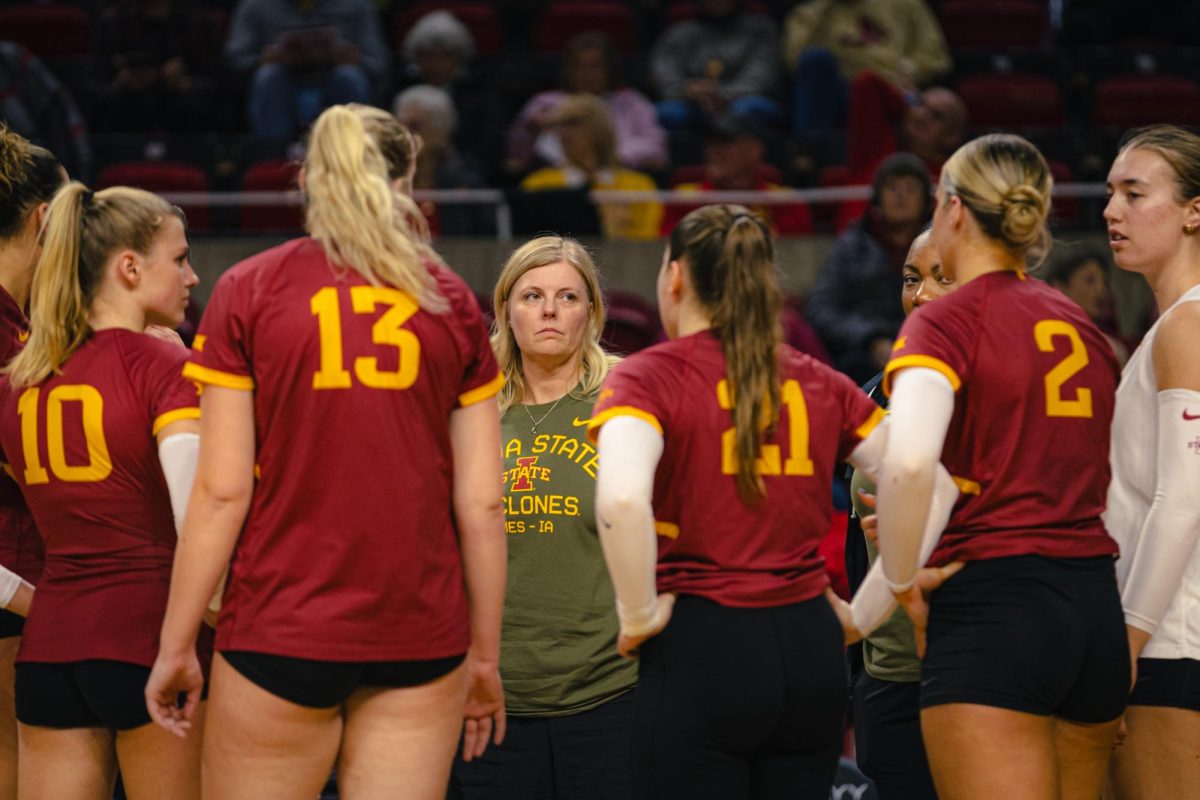Students cite many reasons for cutting class
April 30, 1999
It’s no secret. Almost everyone has done it at sometime — students do miss classes.
The frequency and the effect missing classes has on students is exactly what a journalism and mass communication class wanted to find out when they conducted a telephone survey of 338 Iowa State students.
The anonymous respondents were randomly selected from the student directory and telephoned March 4-10. There were 13 multiple choice questions, and the survey has a margin of error of 5.3 percent.
Many of the questions yielded expected results, but the journalism and mass communication students found a few surprises.
The survey results showed that 55 percent students were more likely to miss a class just before a scheduled break, such as spring break.
Associate professor Patrick Gouran, who teaches Theatre 106, is well aware of the effect spring break has on class attendance.
“In a class of 250 [students], on the Friday of spring break there were approximately 67 people [present],” he said.
Seventy-nine percent of the surveyed students also reported that they are more likely to miss a class if the section is large, which was defined as more than 40 people.
Gouran has seen this effect firsthand, since his theatre class typically has more than 250 students registered. He said students might feel there is a certain anonymity in a large class.
One survey respondent, a freshman in agricultural business, commented about the size of classes he does not miss.
“I always go to my classes when they are smaller than 40 people,” he said. “If you are gone, you get a lot of crap from the teachers.”
Students said they miss classes for a variety of reasons. The survey revealed that sleep (32 percent) was the most likely reason for students to miss class from the five choices presented to them. The second most likely reason students miss class would be illness (29 percent). Leisure activities, other homework and job conflicts followed.
The survey also indicated that morning classes were the most likely to be missed by students, calculated as 58 percent. However, when students were surveyed, no specific day of the week stood out to be missed more than others.
The next most likely day for students to miss class would be on a Friday, resulting in 30 percent of the survey responses. The least likely time of the week students would miss class was reported to be in the middle of the week, resulting in 10 percent of the respondents.
Weather also affects attendance. Fifty percent of surveyed students said they are more likely to miss class when the weather is extremely bad. However, 62 percent of the students surveyed said they would not miss class if the weather was extremely good.
Alcohol and distance are not strong deterrents for students to miss class. Seventy percent of the students surveyed said the distance from their in-session homes to their classes has not caused them to miss any classes.
The majority, 78 percent, reported they have never missed a class, directly or indirectly, because of alcohol use.
A junior in pre-journalism and mass communication said those reasons aren’t valid excuses for missing class.
“If you miss class because of distance, you’re lazy,” he said. “If you miss class because of alcohol, you are dimwitted.”
Classes with attendance policies or instructors who take attendance are less likely to have students miss class. Eighty-two percent of the students surveyed said they would be very unlikely to miss a class when attendance is required. Only 5 percent of the respondents said they would be just as likely to miss these types of classes as other classes.
Gouran said he does not have an attendance policy for his classes, even though he said it would likely increase his classes’ attendance. He said students are adults, and they should be able to live with the consequences of missing classes.
“Many students are the worst consumers,” Gouran said. “They ask ‘Don’t give me what I’ve paid for.'”
The remaining survey responses are as follows:
- Sixty percent of students miss one to five classes in a typical month. Five percent of students miss 11 or more classes per month.
- Fifty percent of students surveyed said they would be very unlikely to miss a class if it was required as part of their academic major. Twenty-three percent said they would be somewhat unlikely to miss that class. Only 17 percent said they would be as likely to miss a required class as any other.
- Sixty-one percent of surveyed students said missing classes has had little or no effect on their overall academic performance. Twenty-four percent said missing classes has had a moderate effect on their performance.
A sophomore in pre-business commented on the last question of the survey — the effect missing classes had on his overall academic performance.
“Last semester, I missed a whole bunch of classes and got a 0.6 [GPA],” he said. “Now I don’t miss.”






